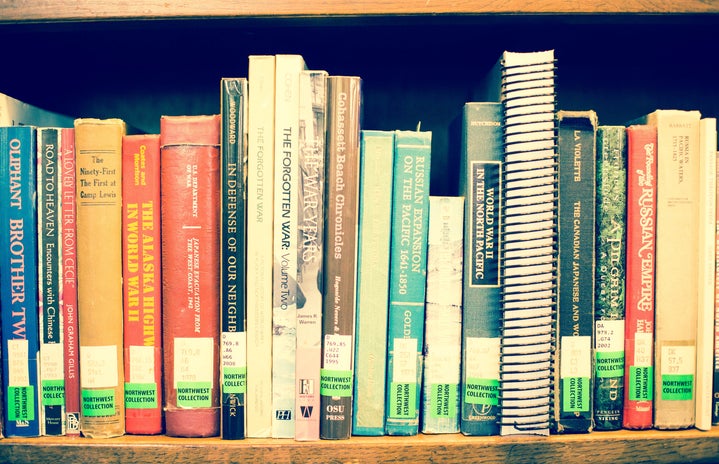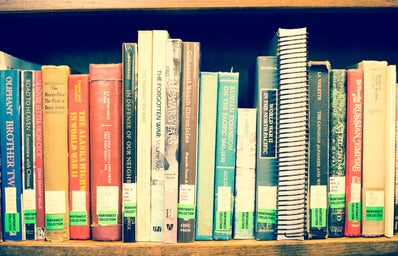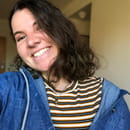Poetry has been something I always loved. Poetry can be so different, varied, and come from every day life. Maybe this will spark an interest in poetry for you. There are various online resources that give you access to hundreds of poets and their poems. I found the poetry foundation’s website especially useful.
1. “A Poem about Nature,” Drora Maltofsky
To start off, I found this poem by Drora Maltofsky. She currently lives in Jerusalem, her English poems can be found in Jewish magazines, as well as a French magazine with her poems written in French. This poem embodies how I feel with social distancing and having to be inside more than usual.
“As a child I was taught poems about nature.
I didn’t really know what that meant.
Nature was the park at the end of the street
Where you weren’t allowed to walk on the grass
And bushes and trees were trimmed and civilised.
In the park I was allowed to run
If I was careful not to bump into someone.
I was allowed to talk and sing,
But not shout.
Nature was a closed-off park.
At school,
I dutifully learned by heart
That nature was beautiful.
I watched the leaves in the park
Turning to so-called gold
And falling off.
That was poetry.
I lost interest
For the next thirty years.
Then I wrote a poem
About a building in a grey street
With rows of identical windows
And television antennas.
I had freed myself from nature.
Now at the bottom of my street
There is another park.
Childen and dogs roll around on the grass.
The air smells of pine.
Bushes, trees and flowers run wild.
No one tells you to be quiet.
I sit there
And listen
And write.”

2. “Why I am not a Painter,” Frank O’Hara
I chose this next poem about how poetry is never truly finished, so many poets actually write longer poems. I have been learning this in my creative writing class. There are not a lot of rules with poem length unless it’s a haiku, or sonnet. Frank O’Hara was a poet who was born in Maryland, he later moved to New York. He attended Harvard University as well as other Universities. He was an art critic, poet and writer.
“I am not a painter, I am a poet.
Why? I think I would rather be
a painter, but I am not. Well,
for instance, Mike Goldberg
is starting a painting. I drop in.
‘Sit down and have a drink,’ he
says. I drink; we drink. I look
up. ‘You have SARDINES in it.’
‘Yes, it needed something there.’
‘Oh.’ I go and the days go by
and I drop in again. The painting
is going on, and I go, and the days
go by. I drop in. The painting is
finished. ‘Where’s SARDINES?’
All that’s left is just
letters, ‘It was too much,’ Mike says.
But me? One day I am thinking of
a color: orange. I write a line
about orange. Pretty soon it is a
whole page of words, not lines.
Then another page. There should be
so much more, not of orange, of
words, of how terrible orange is
and life. Days go by. It is even in
prose, I am a real poet. My poem
is finished and I haven’t mentioned
orange yet. It’s twelve poems, I call
it ORANGES. And one day in a gallery
I see Mike’s painting, called SARDINES.”

3. “ Song,” Allen Ginsberg
Ginsberg was a Beat Poet from the 1950s, a philosopher, a writer, and poet. “Howl” and “America” are also popular and well known poems by Ginsberg. Beat poetry went against the grain and they were influenced by jazz, drugs and sex. Jack Kerouac, and Burroughs were also a part of this generation. Check out some of their poems!
“The weight of the world
is love.
Under the burden
of solitude,
under the burden
of dissatisfaction
the weight,
the weight we carry
is love.
Who can deny?
In dreams
it touches
the body,
in thought
constructs
a miracle,
in imagination
anguishes
till born
in human—
looks out of the heart
burning with purity—
for the burden of life
is love,
but we carry the weight
wearily,
and so must rest
in the arms of love
at last,
must rest in the arms
of love.
No rest
without love,
no sleep
without dreams
of love—
be mad or chill
obsessed with angels
or machines,
the final wish
is love
—cannot be bitter,
cannot deny,
cannot withhold
if denied:
the weight is too heavy
—must give
for no return
as thought
is given
in solitude
in all the excellence
of its excess.
The warm bodies
shine together
in the darkness,
the hand moves
to the center
of the flesh,
the skin trembles
in happiness
and the soul comes
joyful to the eye—
yes, yes,
that’s what
I wanted,
I always wanted,
I always wanted,
to return
to the body
where I was born.”
you can find more of his poems here.
4. “To Change the World Enough,” Alice Walker
Last but not least, “To Change the World Enough” by Alice Walker is a powerful poem that focuses on helping people. She is known for her novel The Color Purple and she is a Social Activist.
“To change the world enough
you must cease to be afraid
of the poor.
We experience your fear as the least pardonable of
humiliations; in the past
it has sent us scurrying off
daunted and ashamed
into the shadows.
Now,
the world ending
the only one all of us have known
we seek the same
fresh light
you do:
the same high place
and ample table.
The poor always believe
there is room enough
for all of us;
the very rich never seem to have heard
of this.
In us there is wisdom of how to share
loaves and fishes
however few;
we do this everyday.
Learn from us,
we ask you.
We enter now
the dreaded location
of Earth’s reckoning;
no longer far
off
or hidden in books
that claim to disclose
revelations;
it is here.
We must walk together without fear.
There is no path without us.”
Reading poetry is an engaging experience. Remember to celebrate this month by learning some more about awesome poets and their experiences!
HCXO, Sharon




